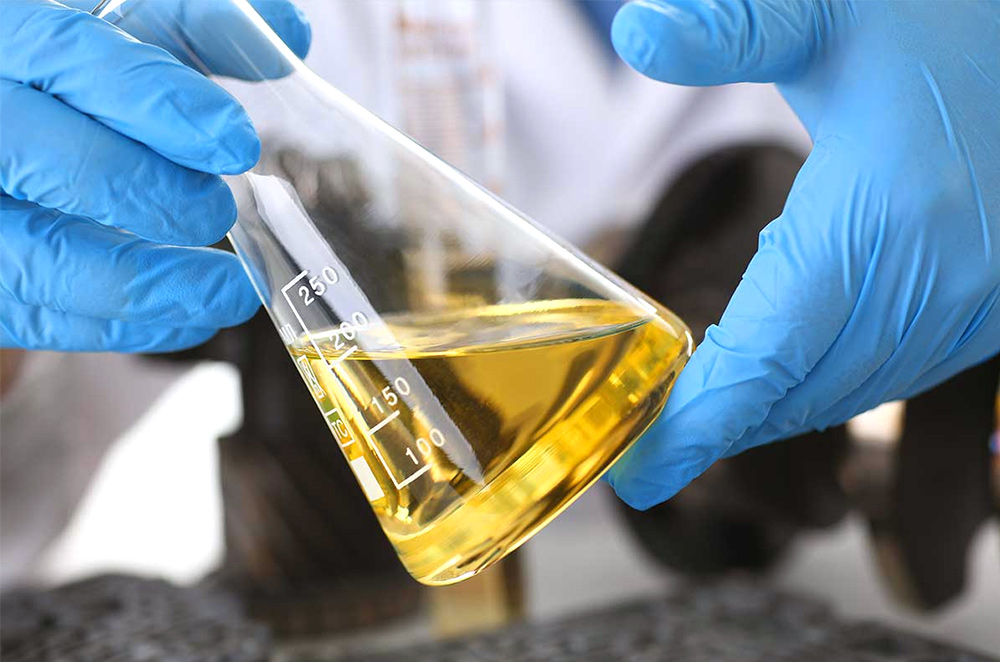
Synthetic fuels have long held the promise of a more sustainable way to power our vehicles. While far from fully developed, these new fuels are currently the focus of several projects from some of the world's leading companies. Some speculate that it's possible to introduce synthetic fuel to current vehicles without the need for any engine modification. Whether that can be done remains to be seen, so the question begs, can synthetic fuels replace gasoline and diesel?
For the longest time, the market has grown accustomed to fossil fuels. Since the 20th century, internal combustion engines have served their purpose to mobilize the population. Popular cars in the Philippines like the Toyota Innova and the Toyota Vios, both run on diesel and gasoline, respectively.
What are synthetic fuels?
Synthetic fuels are lab-manufactured analogs of gasoline and diesel fuels. One of the goals with synthetic fuels is to replicate traditional fossil fuels for use with internal combustion engines. Ideally, synthetic fuels would work just like regular gas, meaning they would be available in gas stations for everyone to avail. You wouldn't have to modify your vehicle's engine in any way to adapt to using synthetic fuels. The advantages of using such fuel are plenty. This type of fuel can significantly reduce CO2 emissions on a large scale. Using synthetic fuels can even render our beloved vehicles carbon-neutral. So, the environmental impact is clearly defined and could benefit many should the technology succeed.
History of synthetic fuels
Synthetic fuels are not as commonly known when it comes to alternative power. Electricity and hydrogen are much more recognized around the world as sources of alternative energy. Despite this, synthetic fuel remains a promising solution for reducing our dependence on fossil fuels.
Synthetic fuel was first developed in Germany in 1913. Friedrich Bergius invented a method to convert coal directly into a form of liquid hydrocarbon. Indirect coal conversion was also invented in Germany in 1923. Chemists Franz Fischer and Hans Tropsch devised a way for coal to turn into a gaseous form before being converted to synthetic fuel. These inventions were pivotal to Germany in World War II. By 1944, the country was producing over 124,000 barrels of synthetic fuels per day. They used these fuels for fighter planes, armored tanks, and of course, cars.
Today, synthetic fuels continue to be in development. While not widely used, many people still hold out hope that advancements will be made to make these fuels more viable for consumers.
Can synthetic fuels eventually replace gasoline and diesel?
Replacing gas and diesel entirely with synthetic fuels is a tall order, but not impossible. One potential barrier is the price point. Some estimates put the price of synthetic fuels at over P200 per liter, about four times as much as regular gas or diesel. The more realistic scenario would be these new fuels aiding our transition into more sustainable practices. Synthetic fuel-powered cars could have a place alongside electric vehicles and other alternatives. As more and more car manufacturers explore renewable energy, we will keep seeing new models that don't rely on fossil fuels. This transition, however, could take years. It may also take a long time for many to adjust to using these fuels. Further study and development are needed to ensure that alternative energy sources are safe, reliable, and environmentally friendly.
Latest Features
-
The 6 things every Ford Ranger must pass before it leaves the factory / Featured Article
Every Ford Ranger, from the base model to the Ranger Raptor, goes through a full inspection process before it leaves the factory. This includes six steps that make sure it’s ready to drive a...
-
Which GAC AION EV is best for your everyday lifestyle? / Featured Article
The GAC AION lineup has something for everyone, maybe you're after space, speed, or just a smooth city drive. Here's a quick breakdown of which model might work best for your day-to-day life...
-
The AutoDeal Awards 2024: Celebrating excellence in the auto Industry / Featured Article
The AutoDeal Awards 2024: Celebrating excellence in the auto Industry
Popular Articles
-
Cheapest cars under P700,000 in the Philippines
Jerome Tresvalles · Sep 02, 2024
-
First car or next car, the Ford EcoSport is a tough package to beat
Jun 18, 2021
-
Car Maintenance checklist and guide – here’s everything you need to know
Earl Lee · Jan 12, 2021
-
Most fuel efficient family cars in the Philippines
Bryan Aaron Rivera · Nov 27, 2020
-
2021 Geely Okavango — Everything you need to know
Joey Deriquito · Nov 19, 2020
-
Family cars in the Philippines with the biggest trunks
Sep 20, 2023
-
Head to head: Toyota Rush vs. Suzuki XL7
Joey Deriquito · Oct 28, 2020
-
Why oil changes are important for your car
Earl Lee · Nov 10, 2020
-
2021 Kia Stonic — What you need to know about it
Joey Deriquito · Oct 16, 2020
-
Top 7 tips for buying a used car in the Philippines
Joey Deriquito · Nov 26, 2020



